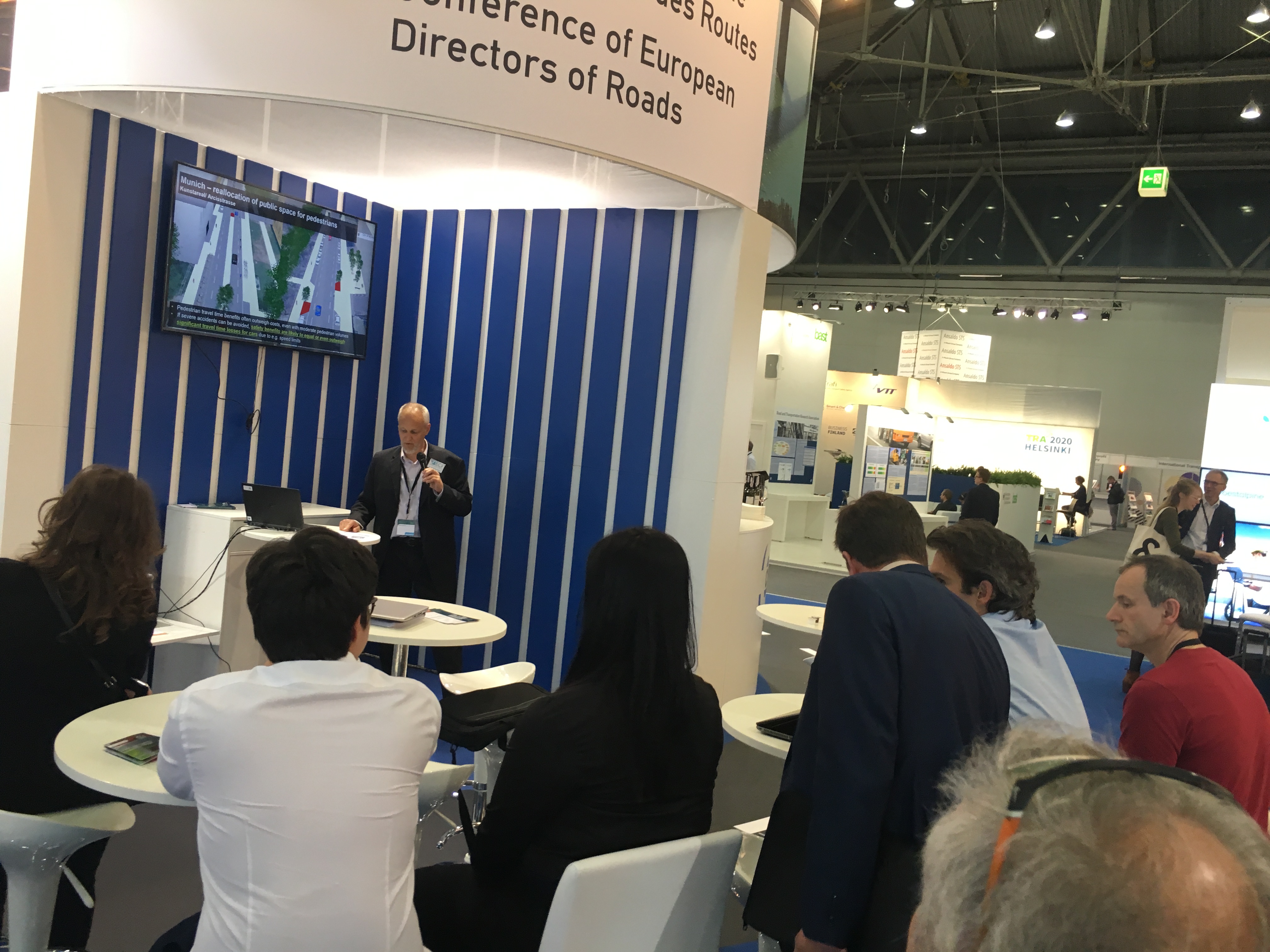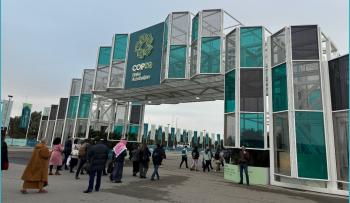
Walking and cycling reduce congestion
Telling success stories of cities reducing congestion by walking and cycling at TRA2018
ECF brought FLOW to TRA2018, telling success stories that show how cities are using walking and cycling to reduce congestion. “From Munich to Dublin and Lisbon, and in Budapest, Sofia and Gydinia active transport helps cities solve transport problems, providing solutions where you may not expect them” said Dr Randy Rzewnicki, ECF health policy officer. He was speaking at the flagship conference for European transport researchers, the Transport Research Arena 2018 in Vienna.
“Cycling and walking are often overlooked as solutions to the problems urban policy makers face. ECF keeps them on the table with facts and figures that show the benefits of active transport,” he said, noting that most people were talking about tunnels, trains, planes and self-driving automobiles.
“HEAT tool is remarkable” - reaction to the FLOW presentation
“We lose 25,000 citizens on EU roads,” said Violeta Bulc, the EU Transport commissioner, opening the conference. “We must create a more favourable environment for transport.” Two days later, ECF presented solutions that show that active transport, like walking and cycling saves lives. And can be used to solve cities' congestion problems too. The WHO HEAT tool is part of the suite of modelling tools in the FLOW toolbox.
Recent WHO HEAT calculations showed that “15 minutes of walking or cycling can save tens of thousands of lives,” said Dr Rzewnicki. “If every adult EU citizen walked or cycled for 15 extra minutes per day, we’d have 100,000 fewer people dying prematurely, each year.” By increasing walking and cycling, cities can increase quality of life for residents, reduce congestion, be more attractive for tourists, and improve public health.
“Focus on how cycle and walking help manage congestion, and not just on moving cars around” - ECF’s Dr Rzewnicki at TRA2018 in Vienna.
At TRA2018 ECF highlighted some of the outcomes of the project, focusing on how the outcomes help city planners and advocates, like ECF members, to advocate for walking and cycling measures to combat congestion.
Highways engineers remain primarily focused on "moving cars around." FLOW has the tools to help moving people while reducing congestion. The examples presented at TRA2018 by ECF included shortening crosswalks in Lisbon, increasing pavement widths in Munich, rerouting cars in Dublin, and getting employees to bike to work in Sofia. All were found to be successful solutions for moving more people which did not increase congestion or travel time for other road users.
About 300 people were at the CEDR exhibition area where FLOW and other EU projects were presented. This means almost 10% of the over 3300 registered participants were exposed to the FLOW project, messages and solutions. . TRA 2018 was hosted by Austrian Federal Ministry for Transport, Innovation and Technology. The FLOW presentation was held in close cooperation with CEDR Conference of European Directors of Roads and FEHRL the Europe’s National Road Research Centres, which was greatly appreciate appreciated by both sides.
About the project:
FLOW aimed to put walking and cycling on an equal footing with motorized transport modes as a solution to tackle urban congestion. It was also the first project explicitly linking walking and cycling with congestion reduction. In the project a user-friendly methodology, involving traffic modelling, was developed to assess the effectiveness of walking and cycling measures.
The FLOW project developed a set of walking and cycling measures to reduce congestion. This portfolio describes the actual effects of different types of measures on congestion by presenting case studies of successfully implemented urban measures supportive of walking and cycling. The measures described have helped reduce congestion or at least have increased walking and/or cycling levels without increasing congestion.
See the full list of successfully implemented FLOW measures and recommedations here.
Network/Project Involved:
Contact the author
Recent news!
Upcoming events
Contact Us
Avenue des Arts, 7-8
Postal address: Rue de la Charité, 22
1210 Brussels, Belgium









